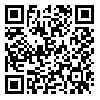

BibTeX | RIS | EndNote | Medlars | ProCite | Reference Manager | RefWorks
Send citation to:
URL: http://hcjournal.arums.ac.ir/article-1-376-en.html
Background & objectives: Anxiety is defined as an unpleasant and vague feeling and often is associated with a sense of uncertainty about an unknown factor. Students who are trained in the hospital settings like operating rooms are affected by stressful factors. Problem-solving is a short-term intervention that can be used to treat psychological problems. This study was carried out to evaluate the effect of problem-solving skill training on anxiety among operating room students.
Methods: This quasi-experimental study with a pre-and post-test design was conducted on operation room students of Ahvaz-Jundishapur University of Medical Sciences, 2013. Data was collected by the demographic information form and Spielberger&rsquos questionnaire. After an initial screening of 90 students, 60 person who had high level of anxiety were randomly divided into experimental (n=30) and control (n=30) groups. The experimental group obtained 8 sessions (one session per week) problem solving training and two months later, the test repeated. The control group only followed-up without any intervention. Data were analyzed using chi-square and t-test in SPSS (v. 19).
Results: The results showed that problem solving training significantly decreased state anxiety (p<0.001), but did not decreased the trait anxiety.
Conclusion: In general, problem solving training course has positive effect on decreasing the anxiety in operating room students. Therefore this training course is suggested for students as a low-cost and simple method.
| Rights and permissions | |
 |
This work is licensed under a Creative Commons Attribution-NonCommercial 4.0 International License. |


